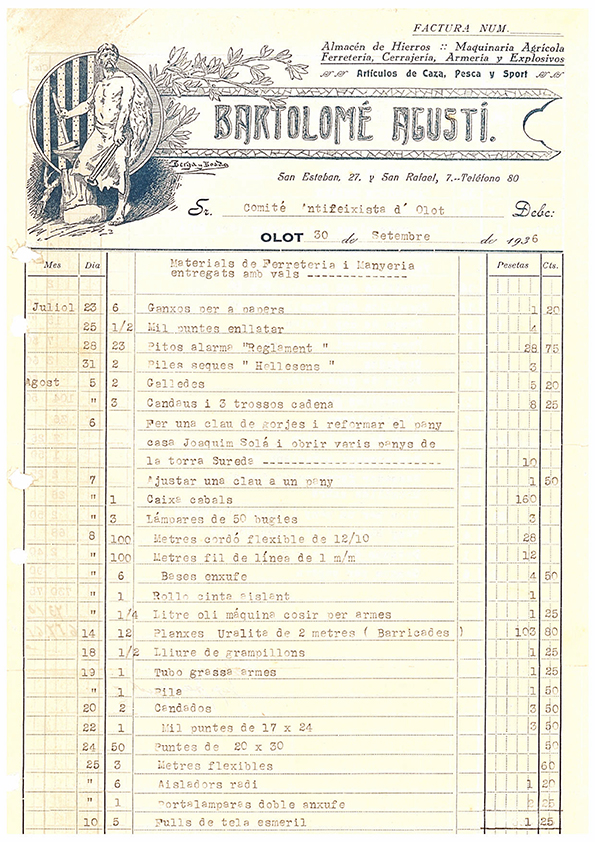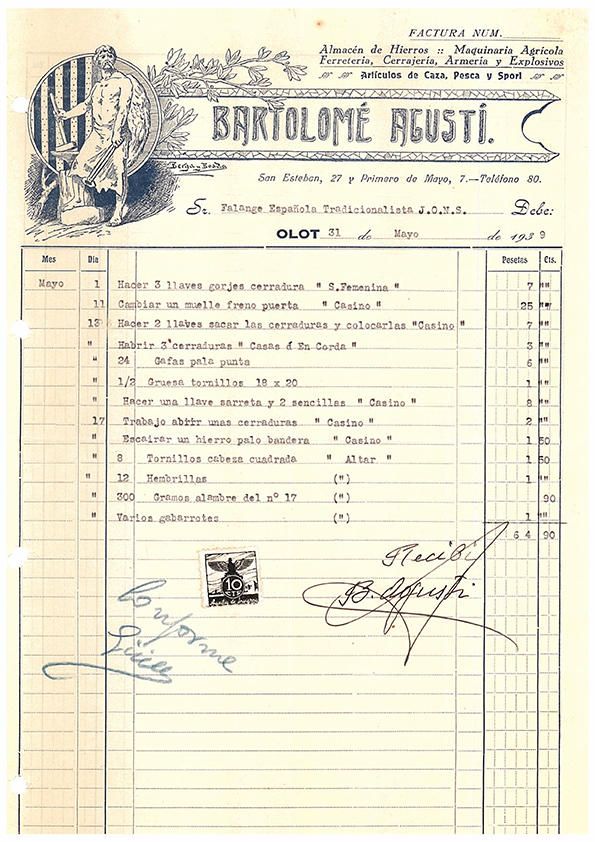Where did Manxa’s history begin?
In 1900, Joan Agustí Surroca bought a locksmith shop in Olot, opened in 1872 and owned by Rafael Casanova, popularly known
During the postwar period, he gave the business to his son, Joan Agustí Reixach who continued the transformation of the business and expanded it beyond the city of Olot.
Bartomeu Agustí Trilla (Olot, 1880-1946) was a charming man and over the years he won the affection of his fellow citizens. It was a one-room store and he rarely left the counter. He was always informed of everything that happened to his business. He had learned the profession at a well known hardware store in Barcelona, Casellas. That learning allowed him to stand out later in the Garrotxa with works such as that of the emblematic Malagrida Tower of Olot, nineteenth-century and with the architect's design Bonaventura Bassegoda.
Over the years, Bartomeu Agustí Hardware was converted into an establishment where even articles of hunting, fishing, and sport were sold. The city of Olot had special love for the Agustí family, everyone trusted in their business. Even during the Civil War, it was not possible to alter the its activity. Two different historical bills are preserved: one dating from September 30, 1936, written in Catalan and issued to the Antifascist Committee of Olot; another on May 31, 1939, written in Spanish and addressed to the Traditional Spanish
Bartomeu Agustí died in 1946. Six years before, his son, Joan Agustí Reixach (Olot, 1911-2004) had begun to take up the business. He had worked in one of the most modern hardware stores of the time: Vilaseca Bas, of Barcelona complementing it with theoretical training at the Industrial School. Joan Agustí Reixach's wife, Carme Alfara Messeguer (Ulldecona, 1913–1977), owner of the Alfara hardware store in Ulldecona, contributed to the success of Manxa. In 1950, Joan Agustí opened a small hardware store on Canal Street in Banyoles, and in 1971, he moved the steel distribution activity to Mestre Falla Street in Olot. Meanwhile, in 1960, Carme Alfara had opened a shop dedicated to wedding registries and small furniture on the main square of Olot. In
In 1977 and after a long illness, Carme Alfara died. That was when her son Joan Agustí Alfara (Olot, 1953) joined the family business, after studying business studies at ESADE (Barcelona). With new ideas, the first decision he made was to officially rename the group as
The second steel warehouse was opened in 1997 in Riudellots de la Selva, thanks to the good performance of the first warehouse in Olot that allowed a growing demand of steel products in the province of Girona.
In 2000, there was an important change in the structure of the company, a Holding structure was created, where all of
The professionalization of the company, the sector
That is why
Nowadays
Chronology of the history of manxa







